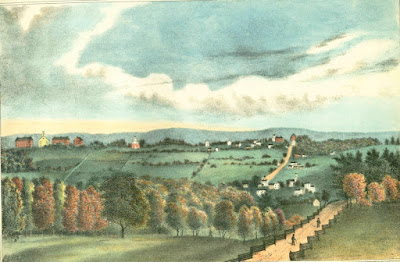Of the many stereotypes connected to libraries, the need for absolute quiet (and therefore the shushing librarian) is by far the most prevalent. In Massachusetts, this stereotype was practically applied when the Massachusetts Legislature passed an 1885 law against disturbing those assembled in a public library or reading room:
While the fine has been increased from $50 to $100, this law continues to be part of the current chapter of laws entitled “Crimes against Chastity, Morality, Decency, and Order” (MGL Chapter 272 Section 41).
Were libraries such rowdy places in the 1800’s that legislators saw these laws as necessary? The Representative that introduced the law, Clement K. Fay, was a donor to the Brookline Public Library and therefore may have had personal interests in discouraging disturbances in Massachusetts libraries. In 1886, the Boston Daily Globe published an article entitled, “Theft and Mutilation: Dangers to Which All Libraries Are Subject.” The article focused on the theft of library materials and the patrons that cut out pamphlets, engravings, and illustrations from valuable library items rather than those that caused disturbances in public places. Caleb Tillinghast, a past State Librarian whose exploits were mentioned in another State Library of Massachusetts blog post, was interviewed for this article and said, “The greatest danger to which libraries are subject from their patrons is mutilation by picture cranks – I mean men who have a passion for collecting portraits or engravings. You can’t trust a biography or magazine with them. First thing you know they will tear out a page containing a picture, map, or some kind of illustration. Of course I do not mean to say that all collectors of engravings are inclined to acts of vandalism, but it is a fact that with many of them the passion is so strong as to overcome all scruples of honesty or propriety. You cannot catch them at it either, except by a lucky accident, and unless caught in the act they can never be convicted.”
 |
| A busy day in the State Library, 1912. |
This concern with vandalism inspired two other Massachusetts General Laws that remain on the books to this day. In 1883, the Legislature passed a law which made it illegal to “willfully and maliciously or wantonly and without cause detain any book [etc]” and that such action “shall be punished by a fine… or imprisonment in the jail not exceeding six months.” That is certainly a hefty punishment for a late library book! This law went on to form the basis of the current law against the “mutilation or destruction of materials or property” in libraries (MGL Chapter 266, Section 100). This law, as well as one regarding the theft of materials or destruction of records in libraries (MGL Chapter 266, Section 99A, was further amended as recently as 1990.
In the same article mentioned previously, an unnamed Boston Public Library librarian stated that, “Emmently respectable people, professional men, are sometimes caught in the act” of stealing library materials. While the development of library materials and security may suggest that these types of laws are antiquated, issues with vandalism and disturbances in libraries continues to be a contemporary issue. A recent case is described in the 2014 book The Map Thief by Michael Blanding, concerning Forbes Smiley III. A former professional map dealer, Smiley was convicted of stealing from libraries around the world, including Harvard’s Houghton Library and the Boston Public Library, in 2006.
 |
| Michael Blanding discussing The Map Thief in the State Library as part of our 2015-2016 Author Talk Series |
Thankfully, we at the State Library are not aware of anyone being charged with or convicted of disturbing our library. As always, our reading room, Room 341 of the State House, is open 9am – 5pm for quiet researchers, visitors, and other members of the public. We hope to see you soon!
Citations:
"THEFT AND MUTILATION." Boston Daily Globe (1872-1922): 3. Jun 17 1886. ProQuest. Web. 5 Sep. 2017.
Alexandra Bernson
Reference Staff










